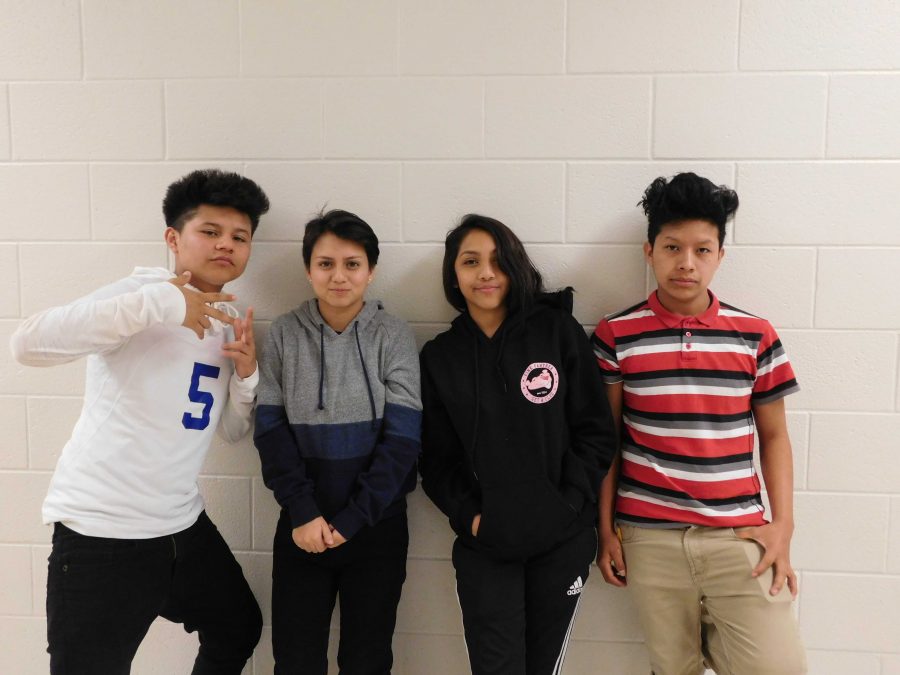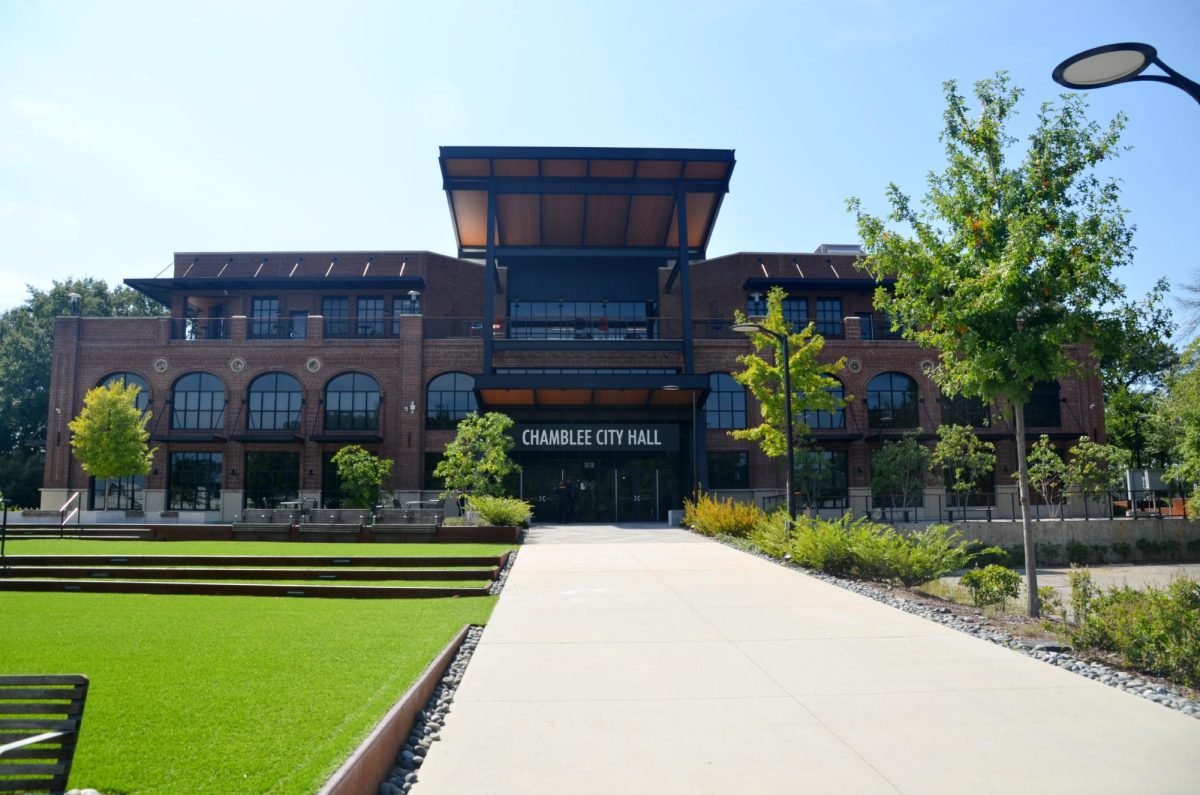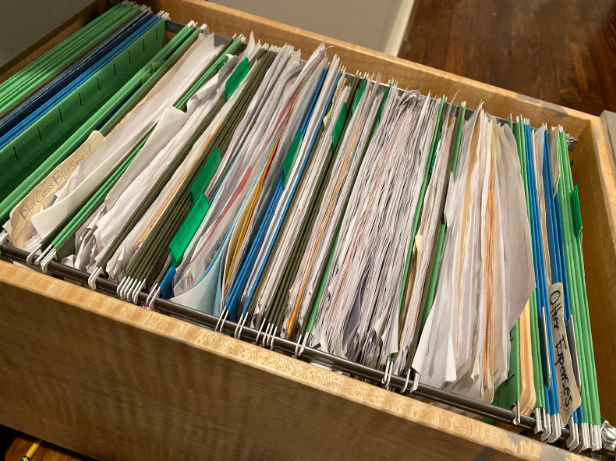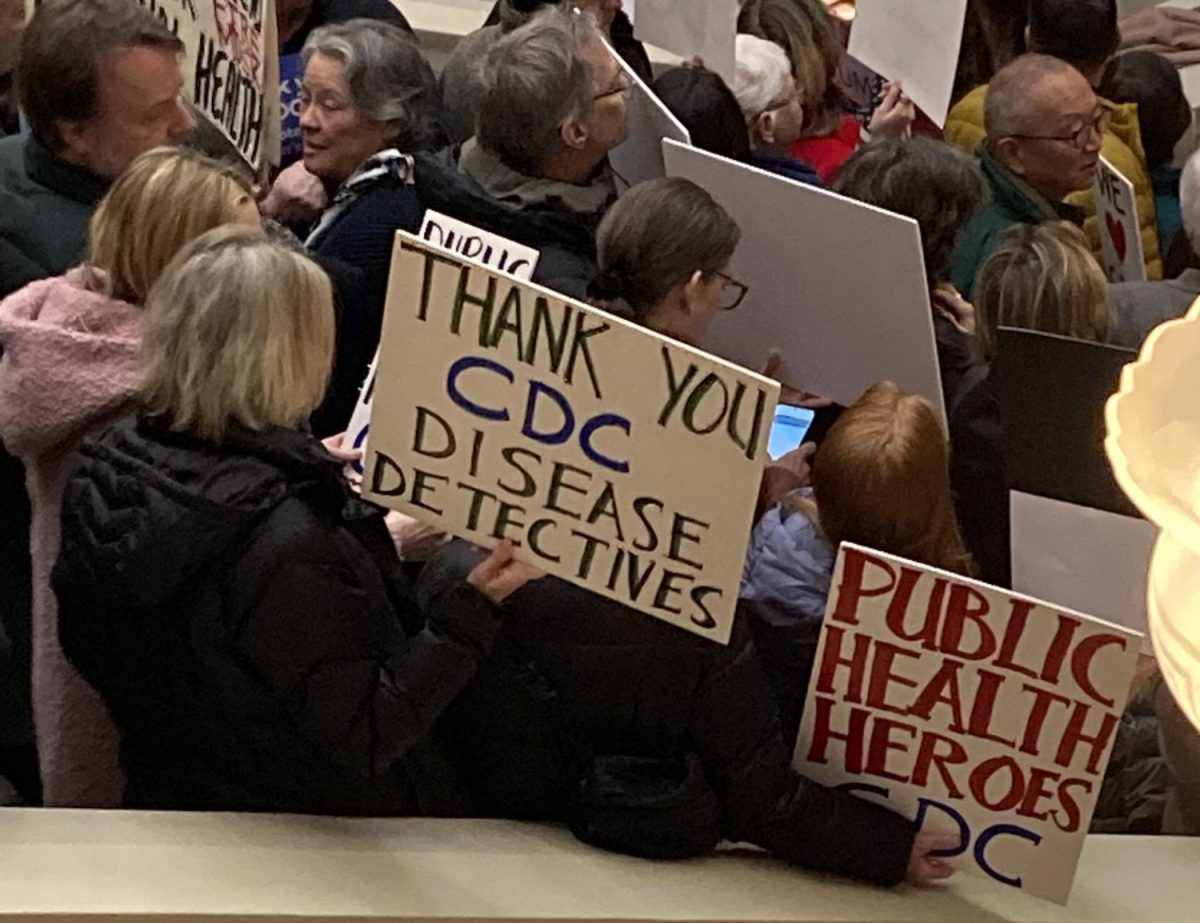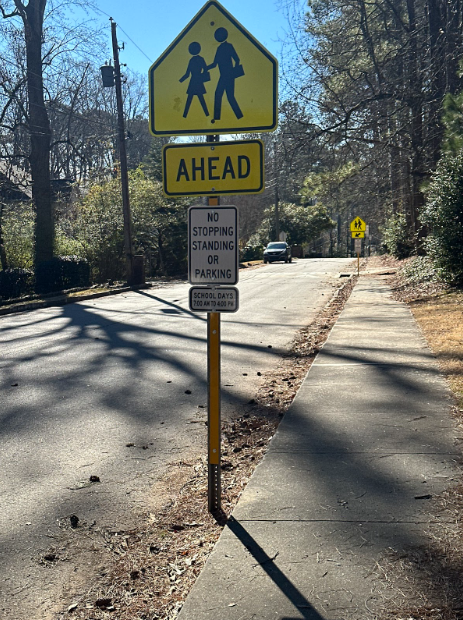On February 16 thousands of immigrants, first generation and native born, citizen, resident, and undocumented, stayed home to show what a “Day Without Immigrants” would look like. The grassroots movement occurred in response to rising xenophobia and the president’s new immigration measures, including the travel ban and an increased amount of U.S. Immigrations and Custom Enforcement raids in majority Latino areas.
Freshman Romeo Lopez Romero was one of the many students absent that day.
“My parents told me not to go to school,” said Lopez Romero. “And it’s better to miss a day of school than for them to send us back to our country.”
Like many others who participated, Lopez Romero’s family not only stayed home from work and school but refrained from buying anything. Others kept businesses open and donated their earnings to non profits.
“I stayed in the house because they [my parents] said that they that they didn’t need to go out at all,” he said. “They didn’t need to leave to buy anything, but some people left to protest.”
Lopez Romero didn’t face any trouble from his teachers for being absent.
“Before the day they asked who was not going to go and almost everybody raised their hand,” he said. “They didn’t say anything, they said it was alright.”
Lopez Romero said he would participate again if there was a second Day Without Immigrants.
“Yes, because we are immigrants and everyone said that they weren’t going to be anything, all the immigrants,” he said.
Freshman Joanna Servin first found out about the protest from a friend.
“I showed my mom a picture that he sent me,” said Servin. “She told me she already knew about it, and she decided that we were all going to stay home.”
Servin’s day was comparable to Lopez Romero’s.
“Honestly, we just had a regular weekend,” said Servin. “My mom just cooked [our] own dinner.”
Servin thinks that the protest was important.
“I know it didn’t make a difference,” she said. “But it showed a lot of people that we’re really necessary to be in this country and actually help out a lot of people, not only like physically but socially and mentally. I feel like it changed a lot of people’s opinions on how they look at immigrants.”
Sophomore Lucy Avila found out through Snapchat. Social media was the main way news about the protest spread.
“My parents were immigrants, and everybody that [I know are] immigrants, like my family, so that’s why I decided to do it,” said Avila. “Because it would show America how it would feel without us. They wouldn’t be able to build stuff or clean windows. It’s less people, less people come to school. Teachers can’t really teach nothing.”
Avila wants the protest to raise awareness about unjust immigration laws.
“My uncle got arrested,” she said. “So I felt like I had to do it too, cause you know, go protest, ‘cause he had a good record, they just arrested him out of nowhere. They shouldn’t be arresting people for no reason.”
Avila also emphasized the contributions of immigrants.
“We do the hardest work like, we do the roads, we clean the cars, we do the hardest jobs,” she said, “like McDonald’s. Teachers here have air conditioning, right? And the people that work in the restrooms don’t really have like air conditioning or nothing, they’re just like working for hours, and get paid lower.”
Similar to Avila, junior Erika Rojas first heard about the Day Without Immigrants through Instagram.
“I thought it was important to show people what it would be like without Hispanics,” said Rojas. “And the schools were kind of empty, from what I heard.”
Rojas thinks the protest highlighted the large Hispanic presence in the United States.
“There’s a lot of Hispanics in the U.S. because they migrate over here for jobs, and they find all the jobs, and they just do the work,” she said. “For example, my uncle, at his job, he posted a video that no one was working, except all like Americans. No Hispanic people went, and there was no one at the construction area. And most restaurants close without most of the people working.”
For Rojas, tighter immigration policy is not abstract.
“Well my uncle got deported some years ago, I was like in fifth grade,” she said. “That made me really sad at the time.”
The current political landscape motivated Rojas to participate.
“It had a lot to do with Trump’s election,” she said. “Before Trump started running, a lot of people wouldn’t say much things about Hispanics, like wouldn’t disrespect them as much, but since he’s the president, they feel like they have the freedom to disrespect anyone that they don’t like, any kind of ethnicity. And I don’t like seeing that around.”

